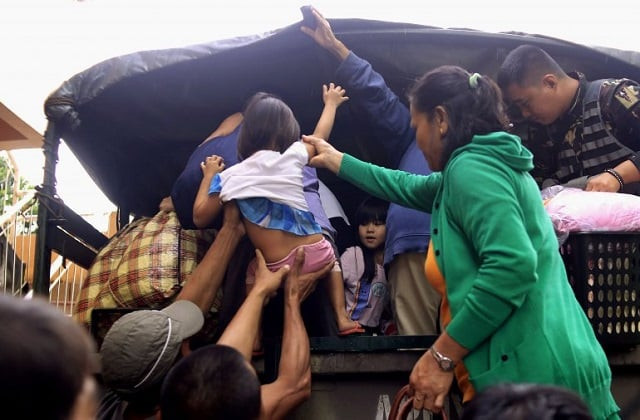Women and men found to respond differently in disasters
Traditional gender roles emerge after a disaster with women becoming the homemaker while men take charge of recovery

Residents are assisted into a truck after the local government implemented preemptive evacuations at Barangay Matnog, Daraga, Albay province on December 25, 2016 due to approaching typhoon. Nock-Ten. PHOTO: AFP
Traditional gender roles also emerge after a disaster with women becoming the homemaker while men take charge of finances and recovery efforts, according to a study by the Natural Hazards Centre at the University of Colorado Boulder.
Agencies responding to emergencies may even at times ask to speak to "the man of the house", the researchers said, adding that women's voices often went unheard.
The study focused on two 2013 disasters in Texan towns – one in Granbury, which was hit by a tornado that killed six and damaged 600 homes, the other in West, where a massive explosion at a fertilizer company killed 15 and destroyed 100 homes.
Protests held across Spain against gender violence
One woman in Granbury recalled hunkering down in a closet with her children as the tornado approached, pleading with her husband to join them as he remained intent on watching the storm through the window.
"Women seemed to have a different risk perception and desire for protective action than the men in their lives, but men often determined when and what type of action families took," said lead author Melissa Villarreal.
"In some cases, this put women and their families in greater danger." Women interviewed in the study complained that recovery organisations tended to call the men in the household to find out where to direct aid, even when women had filled out the forms requesting it.
They were often charged with childcare and domestic tasks and felt excluded from leadership roles in community recovery projects. Villarreal said if disaster victims felt isolated and their perspective was ignored it could hamper mental health recovery.



















COMMENTS
Comments are moderated and generally will be posted if they are on-topic and not abusive.
For more information, please see our Comments FAQ